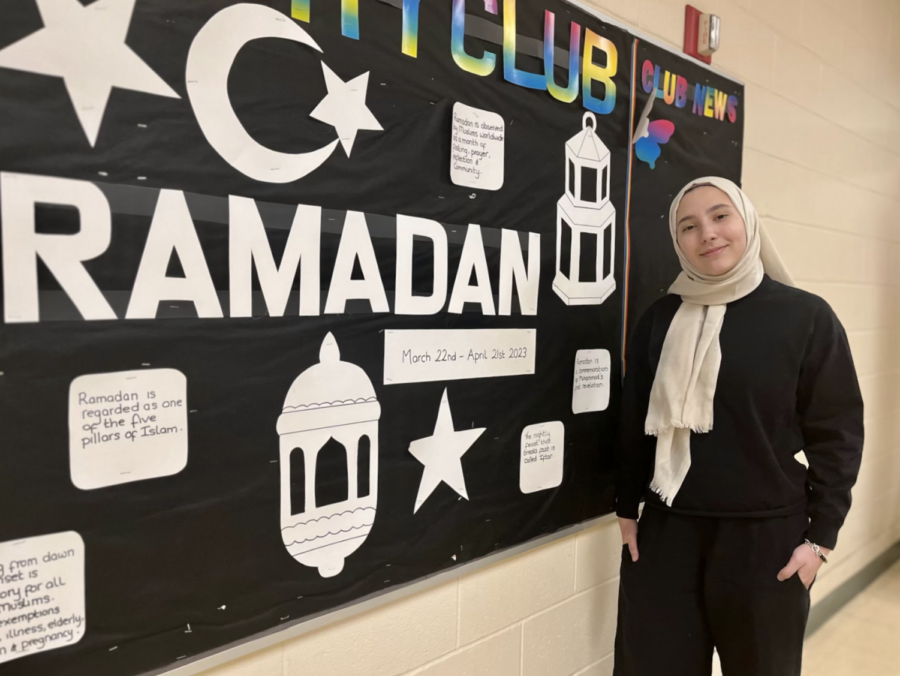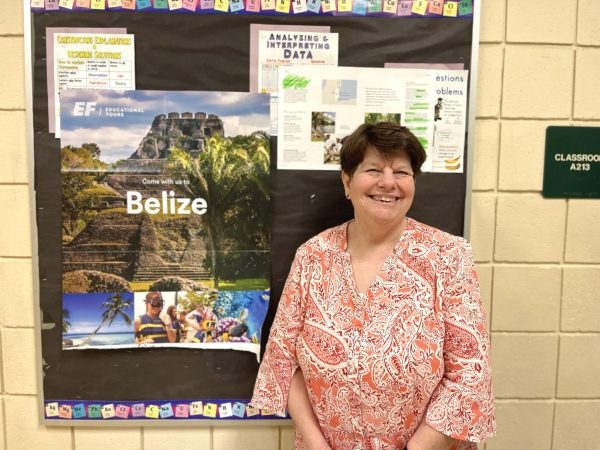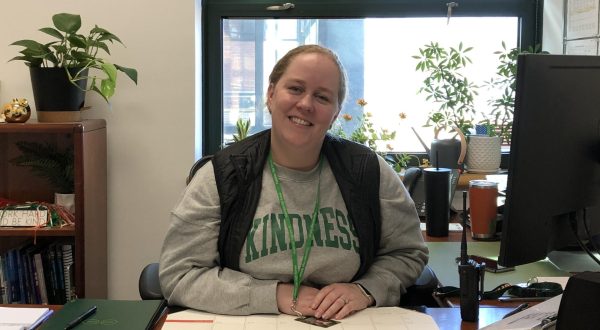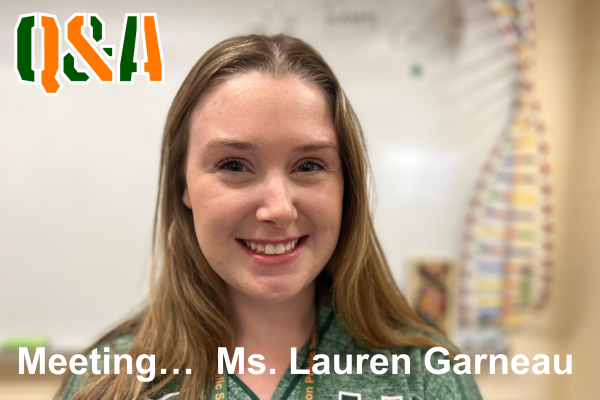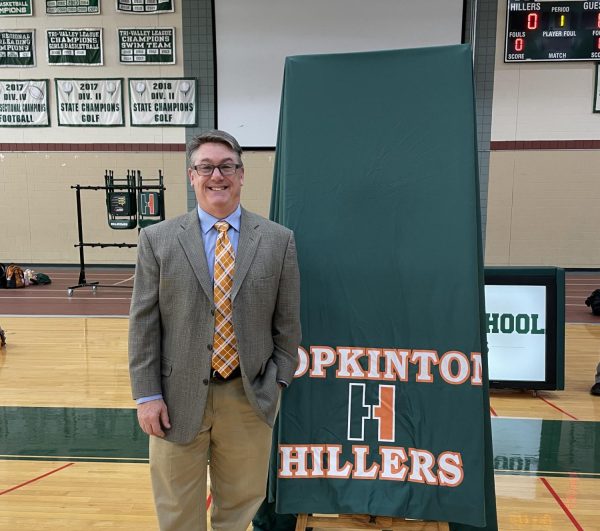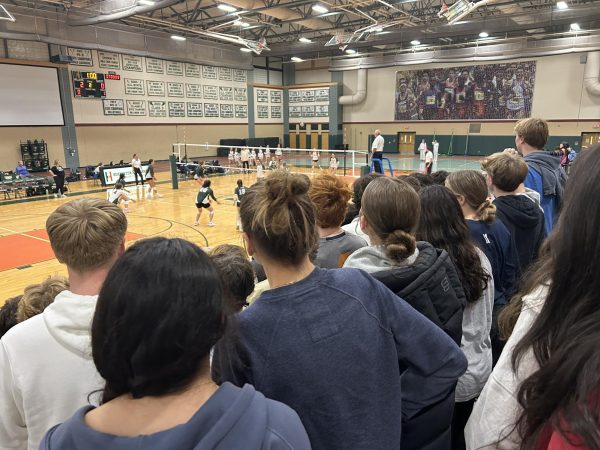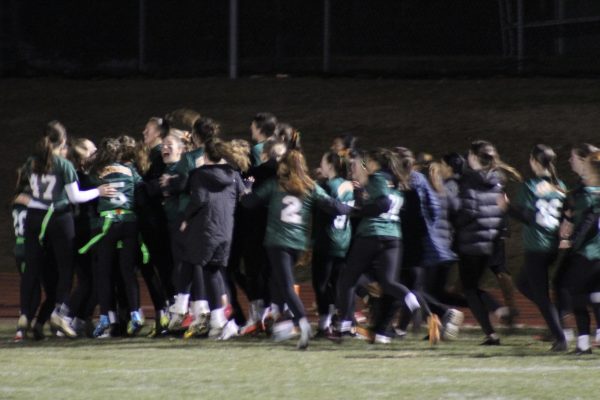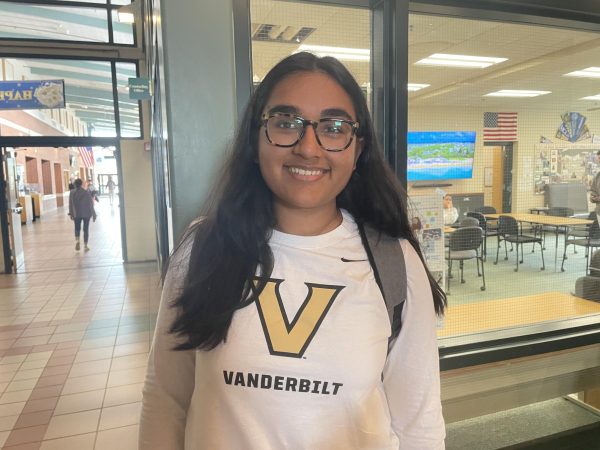Breaking Barriers: How Diversity Club’s New “Spiritual Space” Empowers Muslim Students
Diversity Club co-chair Ayah Kurdi displays the club’s new Ramadan bulletin board. Kurdi and fellow club members have worked to create a safe, and inclusive environment for Muslim students called the “Spiritual Space”.
As Ramadan continues, Diversity Club has honored the holy month by unveiling an area for Muslim students to gather and perform their daily prayers during lunch block. With the school consistently aiming to create a more embracing and welcoming environment for all students, the completion of this project is definitely a step in the right direction.
The Diversity Club, which is advised by Ms. Hesse and meets every Friday in the school library, has always strived for inclusivity.
“Diversity Club is extremely student-run; made for students, by students. It’s a safe space for us to share the changes we want to see in the school and how we can accomplish that as a group,” said Diversity Club co-chair Anna Noroian.
Noroian, along with fellow co-chairs Ayah Kurdi and Tanisha Renjith, directed the creation of the prayer area. This area, called the Spiritual Space, exemplifies the club’s values by embracing differences in religious backgrounds.
“Ramadan is the ninth month of the Islamic calendar, and it’s a month of heightened devotion toward religion where we [Muslims] fast and read the Quran [Islam’s holy text],” Kurdi said.
In the past, Muslim students observing Ramadan had no accommodations for their religious needs during this month. Some students chose not to remain in the cafeteria while fasting. Unfortunately, the school had no designated area for these students to reside.
The Spiritual Space also welcomes use outside of Ramadan.
“In Islam, there are five mandatory prayers for all people above a certain age, and one of these prayers falls during the school day around lunch. In the past, we [Muslim people] couldn’t observe this prayer. This is where the Spiritual Space comes in and helps support students who observe these prayers throughout the year,” explained Kurdi.
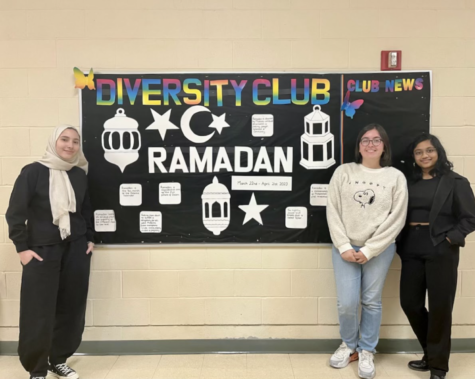
Renjith shared some thoughts as well.
“I think it’s important for people to accept a person for who they are and not just ‘tolerate’ them. The school should try to accommodate Muslim students’ needs and make their lives easier. Even something as simple as creating a space for them to pray during the school day is great,” Renjith said. “Students shouldn’t have to sacrifice their beliefs for school, and everyone deserves to feel included in their community, which is why this space is so beneficial.”
Many Muslim students that use this space, including Kurdi, admire how the Spiritual Space is especially helpful during lunch when they want some peace.
“Since we’re fasting during Ramadan, we may not want to be around a lot of food. Also, sometimes it gets a bit tedious to answer all the questions. Even though I know people have good intentions in mind, sometimes it’s nice to have a quiet spot to go to,” Kurdi said.
However, the creation of this new space opened some questions regarding scheduling conflicts and gaining access to a room during lunch periods. The club required the assistance of a few adults in the building.
“After a few failed attempts in creating the space, two of our members, Ayah and Rabiya, met with Mr. Bishop. He was very supportive of finding a space and he identified a room we could use,” Hesse recalled.
“Next, we held a meeting with myself and the Chair of the Special Education Department, Mr. Mike Donahue. This is because the proposed space is often used by Special Education teachers. After drafting a schedule for the space and getting some word out, more and more people have started spending time in the Spiritual Space,” Hesse said.
Kurdi and her co-chairs also wanted to ensure that the space remained a sacred and quiet area. This is why the club has decided not to openly advertise the Spiritual Space.
“We don’t publicize the location of the space, as we want to ensure that it remains a quiet and respectful area, and we didn’t want people to use it the wrong way,” Kurdi said.
If students wish to utilize the room, they must privately contact Kurdi to receive information.
As much as the school is progressing toward more inclusivity, many, like Renjith, believe that there is still much more room to grow.
“While it’s great that the school now has this new area for students to observe their religious needs, I would like to see more initiative taken by the administration to implement some of these new changes. Up until now, most of these changes have been initiated by students,” Renjith said.
Noroian was in full agreement.
“We believe that the students shouldn’t have to adjust to the school, but that the school should learn to accommodate the students’ needs,” she said.

